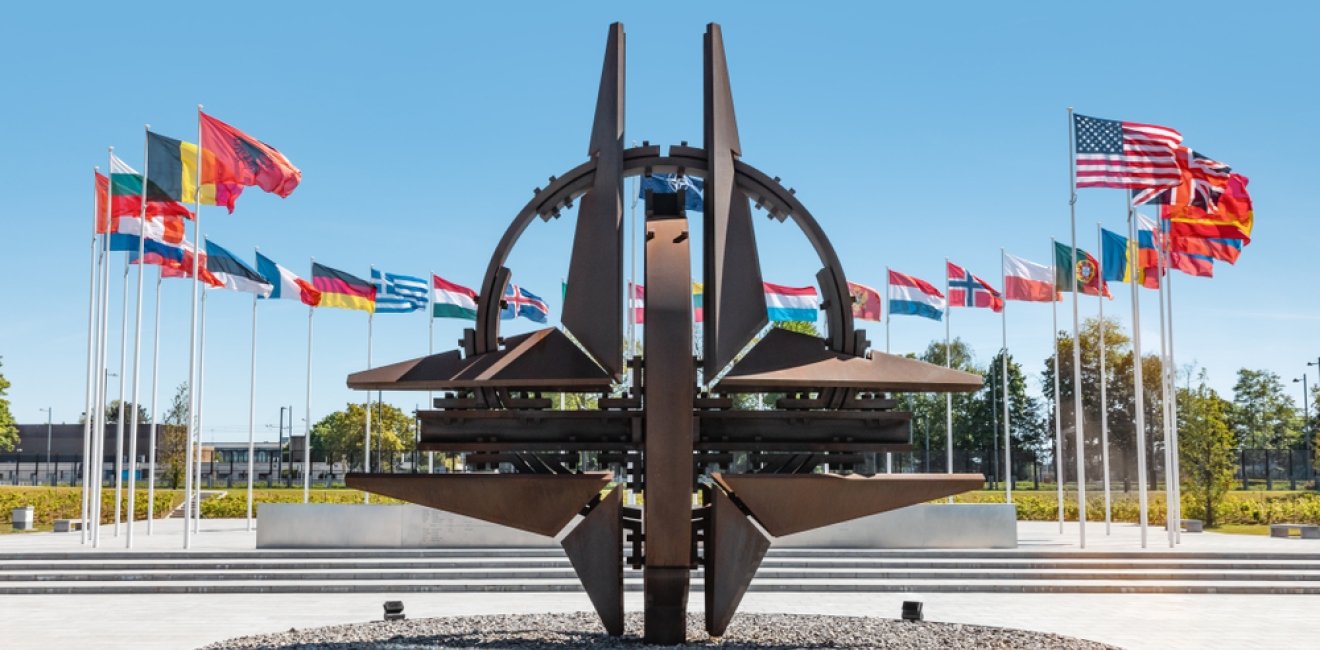
A blog of the Latin America Program
On April 18, President Javier Milei formally requested that the North Atlantic Treaty Organization (NATO) recognize Argentina as a “Global Partner.” His decision drew worldwide attention, given the real symbolism and the misleading headlines suggesting Argentina wanted to join NATO. The hubbub recalled the US designation of Argentina as a Major Non-NATO Ally during the presidency of Carlos Menem in the 1990s, an announcement that also represented a major change in Argentine foreign policy, but likewise fell far short of a formal military alliance.
‘Major Non-NATO Ally’
Neither NATO “Global Partner” nor Major Non-NATO Ally status involve binding political or military commitments. Still, both designations are significant, though widely misunderstood.
Congress established the Major Non-NATO Ally status in 1987 to make certain countries eligible for special benefits, such as participation in defense research projects and access to surplus military items. This last provision was especially relevant in the immediate post-Cold War era, when the United States was downsizing its military and unloading valuable equipment.
The initial Major Non-NATO Ally designees were countries with close defense relationships with the United States–Australia, Egypt, Japan, Israel, Jordan, and New Zealand. Later, the United States added countries such as Thailand, Singapore, and the Philippines in Southeast Asia and Qatar, Bahrain, and Tunisia in the Middle East. In the Western Hemisphere, only Argentina (1998), Brazil (2019), and Colombia (2022) received this status.
For Argentina, the program has offered some material benefits, including the transfer of an excess naval vessel in 1998 and more recently, a C-130 transport aircraft. But in Latin America, the program has not appeared to spur closer military cooperation, but rather rewarded governments for geopolitical alignment. Indeed, the designation is typically announced during a presidential visit to the region.
This was clearly the case when the United States named Argentina a Major Non-NATO Ally, after Menem had adopted a strongly pro-American foreign policy. That included deploying Argentine naval vessels to the Persian Gulf during the US war with Iraq, as part of President George H.W. Bush’s efforts to build a global coalition. Similarly, the United States added Brazil to the program under President Donald Trump, as a reflection of his tight, personal bond with President Jair Bolsonaro.
In the case of Colombia, the designation followed decades of deep security cooperation with the United States, including under Plan Colombia, which involved extensive training and equipping of Colombian security forces during their battle against drug cartels and Marxist guerrillas.
Partnering Up
NATO “Global Partner” status, by contrast, is one of several NATO-led mechanisms to develop formal cooperation with countries outside the alliance. These include the “Partnership for Peace,” the original mechanism to build bridges to former members of the Soviet Union; the “Mediterranean Dialogue,” which includes Israel, Jordan, and several North African and Sahara countries; and the “Istanbul Cooperation Initiative,” for the Gulf States.
Countries not eligible for one of these regional initiatives can request to become a “Global Partner.” It is a diverse group, ranging from advanced democracies such as Australia, New Zealand, Japan, and South Korea, to less developed countries, including Iraq, Mongolia, Pakistan, and Afghanistan (before the return of the Taliban).
A “Global Partner,” like a Major Non-NATO Ally, has special access to defense cooperation. In this case, a NATO “Global Partner” is eligible for NATO advice and support on defense reform and anti-corruption, as well as participation in NATO education, joint research, exercises and training, and even NATO-led operations and missions.
So far in Latin America, NATO’s only “Global Partner” is Colombia. Surprisingly, given NATO’s historic disinterest in the region, Colombia’s relationship with the alliance has flourished. So much so that even the election in 2022 of President Gustavo Petro, a former leftist guerrilla who has disparaged the alliance, has not disrupted the partnership.
Colombia’s agreement with NATO involves cooperation in counterterrorism, disaster response, integrity and transparency in the defense sector, cybersecurity, and climate change. Through the partnership, Colombia has adopted NATO standards, including in the awarding of military contracts. For its part, Colombia has offered NATO its hard-won expertise, including in counter-insurgency, and more recently, peacebuilding. Colombia’s International Demining Center is formally integrated into NATO’s network of Partnership Training and Education Centers. It has trained Ukrainian soldiers, who have also studied cybersecurity and energy security in Colombia.
Alliance Signaling
For Argentina, with limited military capabilities, applying to be a NATO “Global Partner” is part of Milei’s broader objective to transform Argentine foreign policy, which under Peronism held the West at arm’s length, especially under Presidents Néstor and Cristina Kirchner and their protégé, Alberto Fernández.
Milei has called for a “strategic alliance with the United States and all countries that embrace the causes of freedom.” He has purchased used F-16 jet fighters from Denmark, for $650 million. While perfunctorily reaffirming Argentina’s claim to the Falkland (Malvinas) Islands, he has downplayed the territorial dispute, raising the possibility of closer ties to NATO member Great Britain. (Argentina’s request for “Global Partner” status must be approved by all of NATO’s 32 members.)
What “Global Partner” status would mean for Argentina’s military is less clear. Aside from his aircraft purchase, Milei, like his predecessors, is keeping the armed forces on a tight budget, as he dramatically cuts overall spending. Meanwhile, after years of being starved for funding, Argentine’s armed forces may have less to offer NATO than their Colombian counterparts, battle-tested and strengthened by years of US assistance.
Argentine soldiers, sailors, and airmen could benefit from NATO exchanges, education, and training. But in general, a “Global Partnership” for Argentina would be similar to its Major Non-NATO Ally designation: largely a political statement, marking a desire to align more closely with the West. That alone might be worthwhile, however, given intensifying great power competition in the region, with China and Russia vying for influence and building their own military relationships throughout the Americas, including in Venezuela and Nicaragua. It is in the interest of both NATO members and Argentina to see how far they can go together.
Author

Former member of the Senior Foreign Service of the U.S. Department of State

Latin America Program
The Wilson Center’s prestigious Latin America Program provides non-partisan expertise to a broad community of decision makers in the United States and Latin America on critical policy issues facing the Hemisphere. The Program provides insightful and actionable research for policymakers, private sector leaders, journalists, and public intellectuals in the United States and Latin America. To bridge the gap between scholarship and policy action, it fosters new inquiry, sponsors high-level public and private meetings among multiple stakeholders, and explores policy options to improve outcomes for citizens throughout the Americas. Drawing on the Wilson Center’s strength as the nation’s key non-partisan policy forum, the Program serves as a trusted source of analysis and a vital point of contact between the worlds of scholarship and action. Read more


Global Europe Program
The Global Europe Program is focused on Europe’s capabilities, and how it engages on critical global issues. We investigate European approaches to critical global issues. We examine Europe’s relations with Russia and Eurasia, China and the Indo-Pacific, the Middle East and Africa. Our initiatives include “Ukraine in Europe”—an examination of what it will take to make Ukraine’s European future a reality. But we also examine the role of NATO, the European Union and the OSCE, Europe’s energy security, transatlantic trade disputes, and challenges to democracy. The Global Europe Program’s staff, scholars-in-residence, and Global Fellows participate in seminars, policy study groups, and international conferences to provide analytical recommendations to policy makers and the media. Read more

Explore More in Weekly Asado
Browse Weekly Asado
Dengue Haunts South America’s Summers

Lessons from Costa Rica’s Economic Transformation

Women and Latin America’s Digital Revolution

